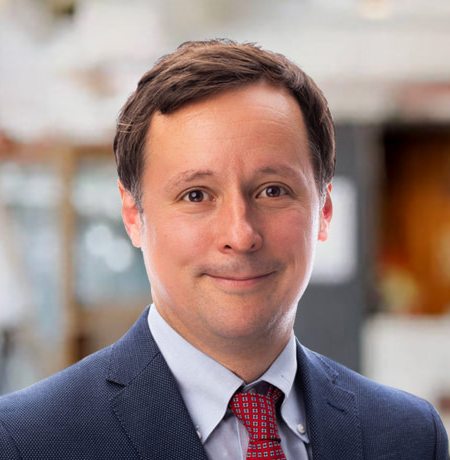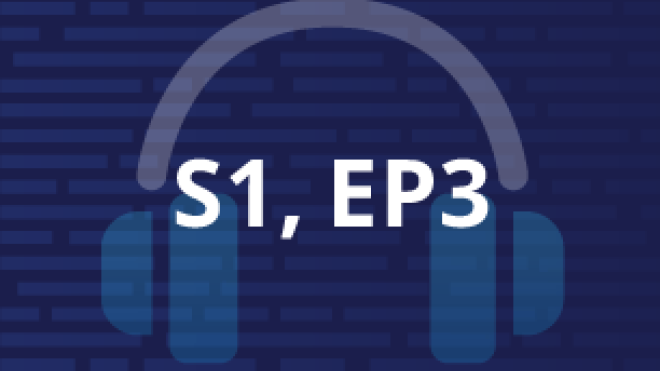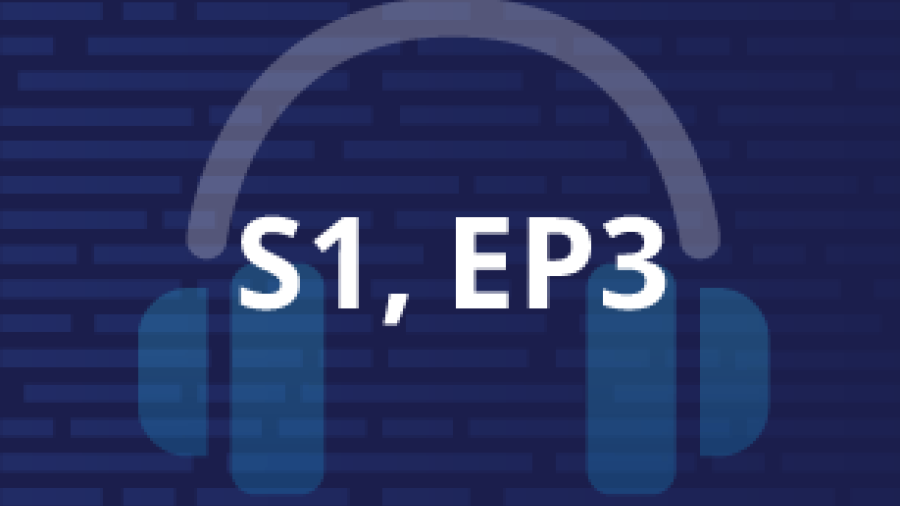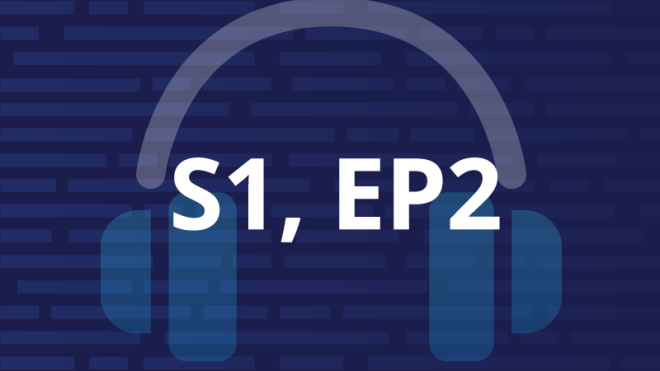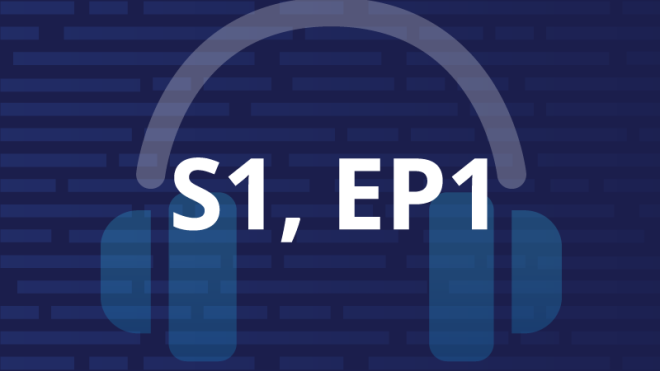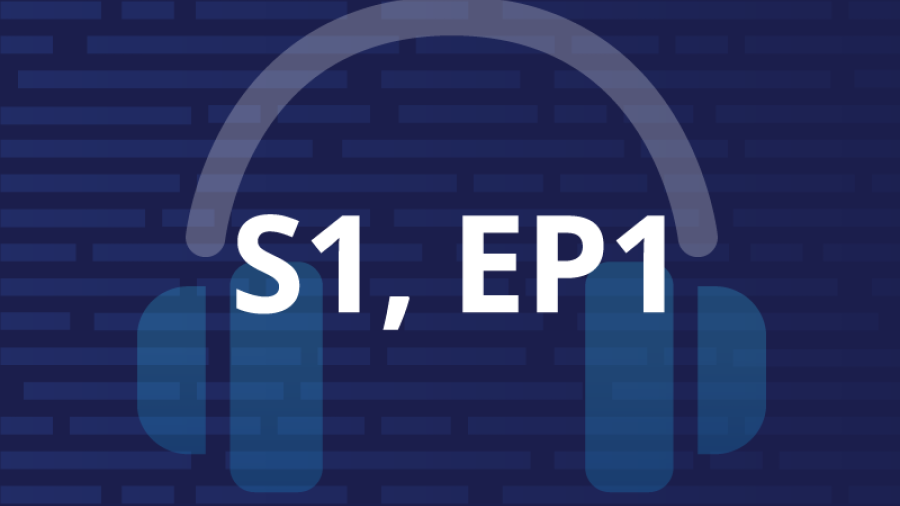The New Ideas from Kaufman Hall podcast series investigates emerging and unexpected trends in healthcare and beyond, featuring Kaufman Hall experts and guests from health systems, academia and related disciplines.
“By simulating, it made us look closer at the data we were seeing and the facts that we were really facing as a reality in our organization. It made us think about what was happening to us.”
Season 1, Episode 4 - Simulating Disruption: A Health System Gets Ready for New Competition
For health system leaders and their boards, figuring out how to keep pace with new, digitally-focused competitors offering affordable, convenient, consumer-friendly platforms can be daunting. And identifying a potential path forward as Walmart, Amazon, CVS Health and others rapidly scale up their healthcare businesses requires more concentrated time and focus than a standing monthly agenda item.
During a recent retreat, leaders at Baystate Health in Springfield, Mass. simulated threats from disruptive competitors—and hashed out innovative “Deal or No Deal” solutions for confronting them.
Jean Ahn, Senior Vice President and Chief Strategy Officer for Baystate Health and Robert Bacon, Vice Chair of Baystate Health’s Board of Trustees and President of Elm Electrical in Westfield, Mass., joined the New Ideas podcast to discuss how the simulation spurred novel thinking on the challenges ahead.
This episode also explores:
- How Bacon’s business experiences informed his outlook on healthcare disruption
- How the simulation helped the board’s strategy group focus on long-term threats and scenarios
- How health systems can prepare and execute their own simulation exercise
Learn more about Baystate's simulation strategy from the American Hospital Association.
HOST

Haydn Bush
Haydn Bush has two decades of experience as a journalist and communications professional in healthcare and related fields. He currently serves as vice president in Kaufman Hall’s thought leadership department.
Prior to Kaufman Hall, Haydn worked in various communications roles at the American Hospital Association and McCabe Message Partners, an award-winning public relations firm focused exclusively on health and healthcare.
During his tenure as a writer and editor for Hospitals & Health Networks magazine, Haydn’s reporting on improving care and reducing costs for the patients with the highest healthcare costs received honors from the National Institute for Health Care Management Foundation and American Business Media.
GUESTS

Jean Ahn
Jean Ahn, FACHE, serves as Senior Vice President & Chief Strategy Officer for Baystate Health, Western Massachusetts’s largest and leading health system. She oversees a value-focused strategy for the health system, which includes four regions, four acute care hospitals (including an academic medical center and the only regional Level I trauma center), Baystate Medical Practices, Baycare Health Partners (PHO), Health New England (health plan), Baystate Home Health (which includes hospice services), and participation in both a NextGen ACO and a MassHealth Medicaid ACO.
Active in the community, Jean is the President-Elect for the Massachusetts chapter of the American College of Healthcare Executives (ACHE), and serves on the boards of the Public Health Institute of Western Massachusetts, Martin Luther King Jr. Family Services (MLKFS) and Baycare Health Partners. A 2015 fellow of the Massachusetts Health Leadership College, Jean holds a B.A. with honors from Wellesley College and a M.H.A. with academic distinction from Cornell University.

Robert Bacon
Bob Bacon serves as Vice Chair of the Baystate Health Board of Trustees. He is also a member of the Board Compensation, Investment, Governance, and Executive Committees. Previous to Noble Hospital’s merger with Baystate Health, Bob also served as a trustee and Chair of the Noble Hospital Board of Trustees.
Since 2000, Bob has been President of Elm Electrical, Inc., an electrical engineering and construction company located in Westfield, Massachusetts, which provides industrial and utility services ranging from solar PV to robotics throughout the Northeast and nationally. He is also a partner/owner of the Northampton Airport, Inc., which includes Seven Bravo Two and Northampton Aeronautics, a commercial flying operation.
An alumnus of Columbia University’s Senior Executive Program, Bob has a BSME from Western New England University. Active in the community, he has served as the President of the Westfield YMCA, in addition to serving on various other organizations’ boards.
Transcription
Haydn Bush: Welcome to New Ideas from Kaufman Hall. I'm Haydn Bush. Hospitals and health systems are increasingly aware of the threats that Amazon, CVS Health, and other new competitors pose to the long-term viability of their institutions. Figuring out how organizations can effectively step up to the challenge can be a difficult endeavor. To get ahead of potential threats and identify potential responses, senior leaders and trustees at Baystate Health in Springfield, Massachusetts, recently participated in a novel simulation exercise. I recently spoke with Jean Ahn, Senior Vice President and Chief Strategy Officer for Baystate Health, and Robert Bacon, Vice Chair of Baystate's board and owner of Elm Electrical in Westfield, Massachusetts. Ahn described how health system leaders came up with the idea for the simulation.
Jean Ahn: As we were looking and reviewing and researching the environment, we saw the fact that these competitive disruptors, from non-traditional, outside healthcare industries, were coming in. It's very intentional. Hospitals are the most expensive, the most heavily regulated, and most cumbersome of all the care continuum. And [the non-traditional disruptors] are really coming together and compiling this outpatient-based, low-cost, very effective health system in addition to a digital network. We wanted to really relay what that signifies. And we had done a war game simulation with our traditional healthcare competitors, and we thought this [simulation approach] might be a very effective way to engage the board yet again.
Bush: [Robert] Bacon is no stranger to disruptive competition in his own industry.
Robert Bacon: When I was in college, I'd spend the summers working in paper mills on electrical stuff. You can't find a paper mill in our area anymore. And so as a business, we needed to evolve and grow into other markets. Currently, our largest markets are utility-scale solar and plant factory robotics. As a business owner, we certainly understood that there were challenges and that the system needed to innovate and change. But there's so many challenges facing a health system, whether it be quality, or access, or non-traditional competitors, that we really struggled with what we should focus on.
Bush: Baystate divided board members and health system leaders up into teams of disruptors or defenders for the simulation.
Ahn: In terms of creating these disruptor profiles, we wanted to make it realistic. So, we created profiles of folks that were already in our market. We created these teams and we created these scenarios. We divided the board up into disruptors and then the health system leaders were naturally the system defenders, if you will. And we determined [whether they could] make a deal or no-deal based on what we had pitched in terms of here's a likely scenario.
Bush: The exercise helped trustees and senior leaders better understand the challenges they were facing.
Bacon: It focused the strategic team on the most relevant challenges we were facing. So it provided focus for the strategy group. I'd also like to make the point that I think there were some clinical senior leaders who also needed it to be simplified from the strategy group, just like the trustees did. And I think the exercise not only benefited the trustees but some of the senior leadership team in simplifying their understanding of the challenges they were facing. It made it easier for them to grasp. And when you put us in a deal / no-deal scenario, we like to be successful and we want to reach a win. Maybe a win-win if we can get there. So I think that really was a very realistic scenario for us. It took us from a “this year” perspective to a five-year perspective as an organization. We are facing challenges today and we are getting opportunities today, and I think we're much more prepared to deal and act on them because we went through this exercise.
Bush: Ahn and Bacon offered words of advice for health systems considering their own disruption simulation.
Ahn: I think in order to be really successful, you really want to make sure that the biases that folks have, the mental models of how they view healthcare – especially seasoned leaders who have been in healthcare 20-30 years – [that they understand that] those mental models may not apply in the existing changing environment. [We need to ask them] to set aside those biases, absorb the information, and suspend disbelief, because the things that they may be dismissive of and in denial about… they may be happening, and they really want to be able to absorb that information. I think that was key to the success of the actual retreat and the simulation, because if you don't understand or at least entertain the possibility that [disruption] might happen, then the simulation is just an exercise in fantasy. And so, you really want to make it effective by really trying to release your mind a little bit to be able to absorb that information.
Bacon: By simulating it, it made us look closer at the data we were seeing and the facts that we were really facing as a reality in our organization. It made us think about what was happening to us.
Ahn: In normal trustee retreats, you're presenting to the trustees. In a simulation, you're plopping them down (in a situation). They're being asked to take on the persona of somebody else, and they have to act. You've got to either decide to do something or not. Take an action or not. And so you internalize and learn very differently, I think in a much more effective way.
Bush: Thanks for listening to this edition of New Ideas.

